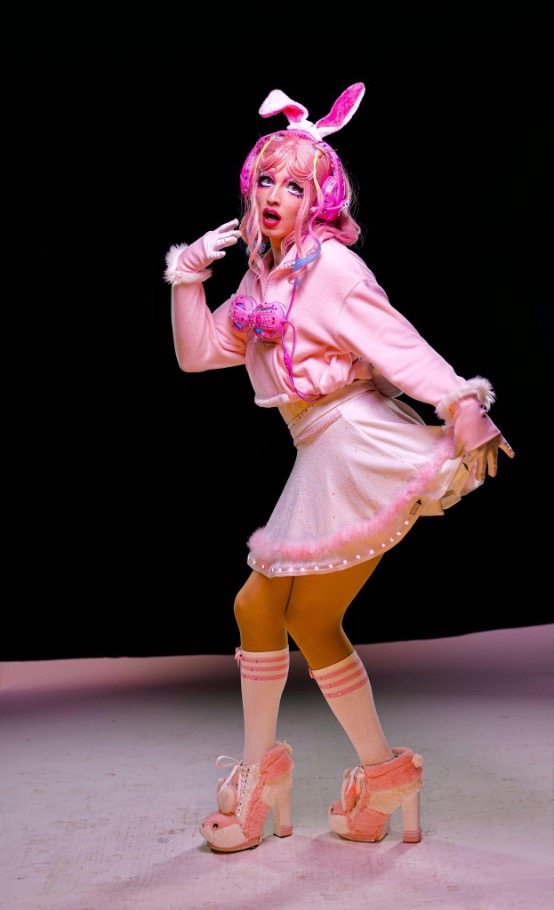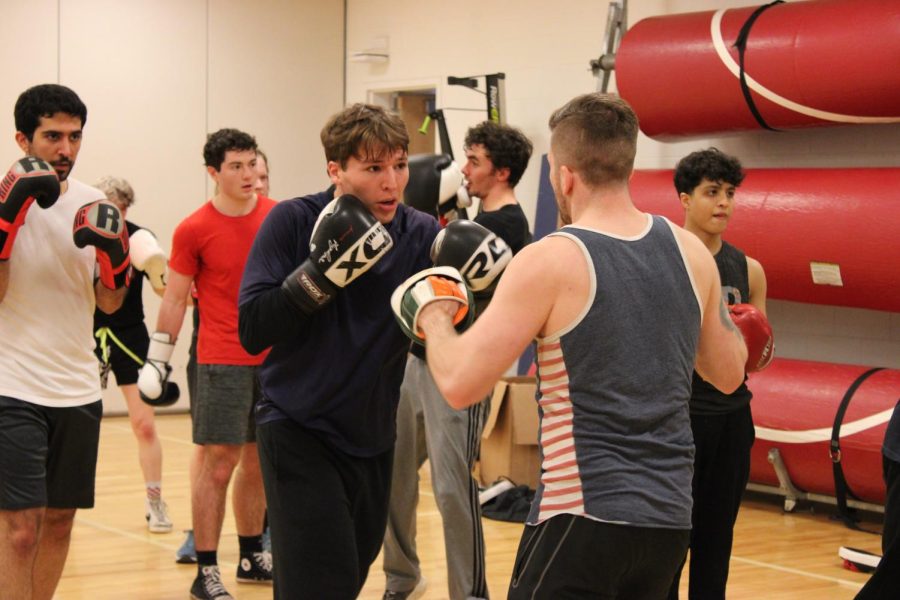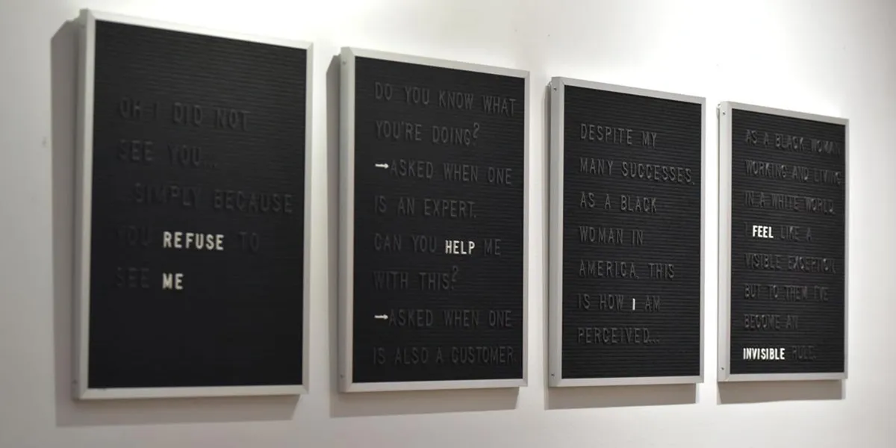
Laura Wildman-Hanlon, a practicing Wiccan, is not your Hollywood witch. She doesn’t wear a pointed hat or have green skin, and she certainly doesn’t turn men into frogs. This she says, is not at all what real Wicca and witchcraft are about.
“Wicca is a modern form of witchcraft,” said Wildman-Hanlon, office manager for the psychology department at the University of Massachusetts. “It’s more of a religious component. It is earth-based spirituality that acknowledges the divine in many forms.”
According to Wildman-Hanlon, not all witches are Wiccan, which is a branch of Paganism or neo-paganism. There are, she said, a wide range of people who are “magic-workers.”
Those magic workers are often portrayed in the movies, she says, as cauldron-stirring, black-robe wearing, incantation-chanting enchantresses like in the TV drama “Charmed” and the 1996 movie “The Craft,” which showed a quartet of teenage witches casting disfiguring curses on their enemies.
“We don’t do that,” said Wildman-Hanlon. “We don’t have special powers and we are not going to cause harm to people. Magic does not create major changes. It’s about a minor poking of the web, minor shifts in perception, minor changes that end up creating other kinds of waves.”
Wildman-Hanlon added that as a Wiccan, she along with many others believes in the threefold law, also known as the rule of three. According to this law, whatever energy a witch puts into the world, positive or negative, will return to them three times.
Witches and Wiccans, according to Wildman-Hanlon, rarely try to invoke change unless they have “a darn good reason to.”
Wicca is a religion, she explained, and like in any religion, there can be people of questionable intent. The majority of Wiccans, she says, take it seriously as a belief and many do not work magic at all.
Along with the misconception of gothic, black-makeup-wearing witches, some people fear that Wiccans are Satan worshipers, a misconception Wildman-Hanlon said she is glad to see has decreased in recent years.
“We do not worship Satan,” said Wildman-Hanlon. “That is actually more of a Christian concept than a Wiccan one.”
Wildman-Hanlon says that people are beginning to understand that, though there are Satanists in the world, they are not Wiccan. That said, though, Wildman-Hanlon has encountered her share of discrimination.
“Some people of conservative faiths … consider me an abomination,” said Wildman-Hanlon. “They’ll pray for my soul and as far as they’re concerned I’ll burn in hell because I’m not following their particular beliefs. That’s very sad. I don’t believe any of that. I give honor to their deity forms. I have no problems walking into a church or a Mosque or any religious place as long as they will allow me to be.”
Wildman-Hanlon has been employed at UMass for 14 years and is a mother of three. She says she is raising her children as Pagans, though she encourages them to explore other religious possibilities.
Wildman-Hanlon grew up with Christian parents, her mother belonged to an Episcopalian church. She has been practicing Wicca since the 1980s when she first came across a name for her beliefs in a book. Instead of her choosing a faith, she believes Wicca “chose” her.
“My beliefs and the way I look at the world affect my life every single day,” said Wildman-Hanlon. “I look at things as having shades of grey as well as light and dark. I try to look at the interconnectedness of everything I’m doing and everything I’m seeing.”
Wildman-Hanlon, who marries Wiccan couples, has encountered many different responses to her faith, she says, including a mother who panicked when she found out her son was partaking in a traditional Wiccan wedding.
“A couple I was marrying neglected to tell the mother that they were having a Wiccan Ceremony with a priest and a priestess, casting a circle and inviting the elements. The mother shows up at the wedding and when she was told the wedding was a Wiccan ceremony, she turned pale and started to shake. She looked around asking, ‘You’re not going to kill an animal are you?’”
Along with that reaction, there were others who chose to mock her faith. She said one person asked her, ‘Are you a good witch or a bad witch?’ in a condescending voice, while others will roll their eyes, laugh or say, ‘No, you’re not actually a witch.’
This confusion surrounding witchcraft and Wicca, she said, can be attributed to fear – fear of curses and black magic, which she says is not what Wiccans are about. Wiccans cannot snap their fingers and make something happen or change their circumstances in the blink of an eye. It is not fantasy, she says, but spirituality.
Steffi Porter can be reached at [email protected]







bobbie • Apr 3, 2013 at 6:39 pm
That is such a beautiful picture
barbara • Dec 17, 2012 at 4:25 am
hi my name is barbara lugones how i can become in a wiccan my mom pass away 2 years ago and she practice african witchcraft ,diferent than a wiccan but i’m really interesting in this please contact me as soon you can thanks
Leigh Griffith • Dec 21, 2011 at 10:21 pm
Thank you for this article. It has only been 38 years since I wrote a letter to the Collegian while I was a student at UMass Amherst saying pretty much the same things. It needs to be said over and over until the masses “get” it. Leigh
Jason • Dec 16, 2011 at 11:09 am
She should definitely be free to practice whatever spiritual or religious practices her picks. Some people like to portray Wicca is an ancient pagan religious practice, in reality it was created in the 20th century by Gerald Gardner. Despite his claims of it being an ancient religion, he borrowed heavily from Aleister Crowley’s Gnostic Mass, which itself is loosely based on Eastern Orthodox Church ceremonies. Aleister Crowley himself claimed to be influenced by a being called Aiwass.
The point on worshiping Satan (The Accuser) is complex, and yes it is true Neopagans and Wiccans don’t consciously worship Satan. But from a Christian point of view, if you are not worshiping that which is Godly, you are worshiping something that is of Satan.
Kilmrnock • Dec 9, 2011 at 6:01 pm
I salute MS wildman-Hanlon for having the ability and courage to be out of the broom closet/ open with her beliefs . We in the pagan community need more like her . She promotes a positive image of Pagans in general and Wiccans. As far as some of the previous commenters go, troy is believing a fantasy and GValle is ignorant and stupid . I have been a Pagan for over 25 years, have never seen any Witch or Pagan that has hollywood movie / Fantasy type powers . Anyone that thinks they do is delussional.Wicca and the many forms of Paganism are religions .Magic is possible but in the ways this article depicts .And actualy casting spells is best described as powerful praying. Paganism is a blanket term describing many Earth Based , polythiestic , many ancient based neo pagan and pagan beliefs . Many/most are based on pre Christian European and meditereanean beliefs. Wicca is doutheistic , god and godess, but most are polytiestic/ patheonistic in structure . with many gods , from a given pantheon.The article is correct Satan / the Devil is a monothiest concept ,Christian, Jewish ,Muslim concept from the Abrihaic faiths that is found nowhere in Paganism , pagan Donot believe in or worship satan , that one isn’t ours . Belongs to the afore said monotheists . Kilm
Obsidia • Dec 9, 2011 at 11:18 am
As a Witch, I must say, first, that the title of this article is misleading. Why was Ms. Wildman-Hanlon identified as a “Lecturer”???
Secondly, as a Positive Witch, it seems to me that throwing curses is not necessary. One’s actions guarantee that “what goes around comes around,” if not in THIS life, in the next.
Thirdly, if you’d like to know what being a Positive Witch is all about, I recomment Marion Weinstein’s book __Positive Magic__.
Onyx • Dec 8, 2011 at 6:43 pm
I would say that Troy’s statement is probably more realistic then the suburban Wicca being practiced now. To say that such magic is disturbing is also to say that magic isn’t normally practiced that way. Visit some other countries, or find out how other cultures practice, and then reconsider those kinds of whitewashed opinions. It seems to me that much of Paganism has veered too close to New Age thinking…”Oh, we’d never dare to think of doing that!” Of course we don’t.
As for G Valle’s comment, I’d say this person is ignorant of the history of magic. That is where science and psychology comes from. Magic is the parent of both, and it’s almost impossible to separate science from magic, let alone magic from spirituality. Most skeptics tend to be willfully in the dark about that. Too bad; they might have learned something.
john • Dec 8, 2011 at 6:19 pm
Great article,
I recommend for those who want to know more to check out
“Broomsticks and quidditch” by Professor Lupin
Sheila • Dec 8, 2011 at 5:19 pm
The writer of this article is not a psychology professor G Vaile. She is an office manager for the psychology department at UMass. And she is very articulate and straightforward. I studied about Wicca as well as many other religions over the years and she is practicing her religion as lovingly as she feels led to. Everyone else should do the same.
DeAnna Rice • Dec 8, 2011 at 5:06 pm
GValle….Is there a need to be rude…really?
An important point is always missing in these discussions of wicca. That one does not need to practice with others. Covens are nice for some, but any of us are solitary, becos of the “politics’ sadly that happen in some covens.
Yes there is the darker aspect of it. Theres no white/black wiccan. But one must be careful when asking for Judgement on others. Judgement uses a two sided sword and those who ask, can be cut by that swords upswing.
Its better to let karma take its course, unless you are singled out. And even then, you can get hurt.
Do what you will…but harm none.
Blessed be,
Seamroeg
Tina • Dec 8, 2011 at 2:49 pm
I have to say thank you so much for writing this article as well. It is good to see Wicca being portrayed in a good light and for what it really is. And Troy I’m with Mike, your take on Wicca is disturbing… I’m a pagan myself and have never, never thought of Paganism or Wicca in that light.
G Valle • Dec 8, 2011 at 12:35 pm
UMass never changes.
This woman is a psychology professor? She needs a psychologist.
buddhamom65 • Dec 8, 2011 at 11:50 am
Thank you for sharing what Wicca is truly about, it is not about cursing..just like Jesus is not about hate. It is nice to see such warm, loving way put to Wicca.
Sonja • Dec 8, 2011 at 10:47 am
I just read the article and found it very interesting. Im only a ONE month old student of the witch craft but has always found it interesting. Afraid of what people might think of me if I say I like to be a witch – a kind witch. Wile reading the story I suddenly felt that I dont have anything to be ashamed of. So this made me determinded. I will keep on lightning my candles and say a blessing or prayer with pride. Thank You – blessed be
David Pollard • Dec 8, 2011 at 9:45 am
Hollywood is notoriously bad at portraying religion. To say that Charmed or The Craft portray Wiccan life, is to say that The Exorcist displays typical Christian life.
Mike Thornton • Dec 8, 2011 at 9:32 am
Wow, Troy. Seriously, wow. I’m a Pagan, and I have to say, your take on Wicca is rather disturbing. Retribution through magick? *tsks*
Also… Pointed head?
Cheree Porter • Dec 8, 2011 at 8:40 am
Thank you so much for writing this article. Wicca is a beautiful and life affirming religion and I appreciate reporting that shows that.
Troy • Dec 8, 2011 at 5:13 am
The Craft is actually pretty realistic, although that sort of power is rare. The most I have encountered are premonitions of dead bodies and candles refusing to blow out, or unexplained strong winds blowing out candles in well insulated rooms, with no AVAC in them. I feel the goddess’ presence everywhere I go and the horned god’s power as well. I also feel the evil elements try to surface but I always push them away. If you really do piss off a witch most of them will commit spiritual revenge and curse you. Some are too kind to ever think of wishing bad on their enemies but most will dish out an appropriate punishment. My mother cursed many people that brought us harm and they had terrible things happen to them that they deserved. Including my babysitter being thrown in prison after having whipped me with a dog chain (not for that act), and a cruel teacher I had falling off a balcony and breaking most of her bones the weekend after my mother cursed her in front of all the other parents. Wicca encourages people not to wish any harm because it does come back to harm you, so I recommened cursing people to receive 10 times the harm they promote in the world and receive 10 times more love than they promote in the world, this avoids the threefold law and people are doomed to their own actions. trojanwicca.blogspot.com where I share my spells free and other advice.